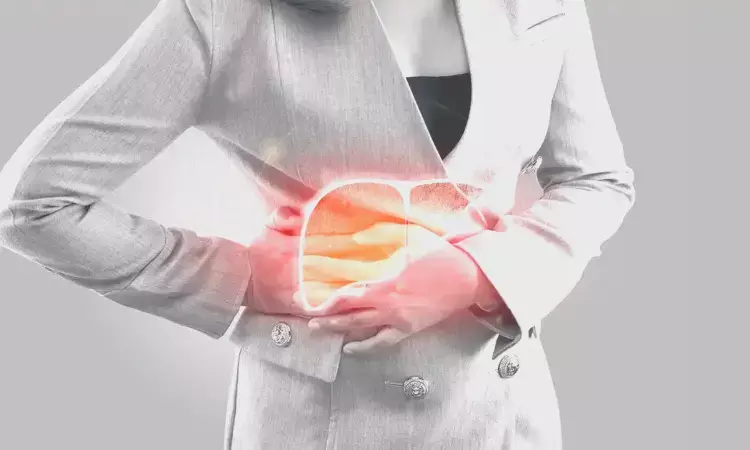- Home
- Medical news & Guidelines
- Anesthesiology
- Cardiology and CTVS
- Critical Care
- Dentistry
- Dermatology
- Diabetes and Endocrinology
- ENT
- Gastroenterology
- Medicine
- Nephrology
- Neurology
- Obstretics-Gynaecology
- Oncology
- Ophthalmology
- Orthopaedics
- Pediatrics-Neonatology
- Psychiatry
- Pulmonology
- Radiology
- Surgery
- Urology
- Laboratory Medicine
- Diet
- Nursing
- Paramedical
- Physiotherapy
- Health news
- Fact Check
- Bone Health Fact Check
- Brain Health Fact Check
- Cancer Related Fact Check
- Child Care Fact Check
- Dental and oral health fact check
- Diabetes and metabolic health fact check
- Diet and Nutrition Fact Check
- Eye and ENT Care Fact Check
- Fitness fact check
- Gut health fact check
- Heart health fact check
- Kidney health fact check
- Medical education fact check
- Men's health fact check
- Respiratory fact check
- Skin and hair care fact check
- Vaccine and Immunization fact check
- Women's health fact check
- AYUSH
- State News
- Andaman and Nicobar Islands
- Andhra Pradesh
- Arunachal Pradesh
- Assam
- Bihar
- Chandigarh
- Chattisgarh
- Dadra and Nagar Haveli
- Daman and Diu
- Delhi
- Goa
- Gujarat
- Haryana
- Himachal Pradesh
- Jammu & Kashmir
- Jharkhand
- Karnataka
- Kerala
- Ladakh
- Lakshadweep
- Madhya Pradesh
- Maharashtra
- Manipur
- Meghalaya
- Mizoram
- Nagaland
- Odisha
- Puducherry
- Punjab
- Rajasthan
- Sikkim
- Tamil Nadu
- Telangana
- Tripura
- Uttar Pradesh
- Uttrakhand
- West Bengal
- Medical Education
- Industry
'New Affirmative And Non-Stigmatizing "Fatty" Liver Disease Nomenclature announced by Multinational Liver Societies

USA: The multinational liver societies leaders from La Asociacion Latinoamericana para el Estudio del Hígado (ALEH), American Association for the Study of Liver Diseases (AASLD), and European Association for the Study of the Liver (EASL) as well as the co-chairs of the NAFLD Nomenclature Initiative announced New “Fatty” Liver Disease Nomenclature at At EASL Congress 2023.
The multinational liver societies together with patient advocacy groups had convened and endorsed a global nomenclature group in 2020 to review naming and definition options for NAFLD. The report was published on June 24 in Hepatology.
According to new nomenclature steatotic liver disease (SLD) was chosen as an overarching term to encompass the various aetiologies of steatosis. Further it was felt that term steatohepatitis should be retainedas it was an important pathophysiological concept.
Nonalcoholic fatty liver disease (NAFLD) will be termed as metabolic dysfunction-associated steatotic liver disease (MASLD). MASLD encompasses patients who have hepatic steatosis and have at least one of five cardiometabolic risk factors.
It was decided that a new category termed MetALD be selected to describe those with MASLD who consume greater amounts of alcohol per week (140 g/week and 210 g/week for females and males respectively) outside of pure MASLD,.
Those with no metabolic parameters and no known cause have cryptogenic SLD. Nonalcoholic steatohepatitis (NASH) shall be replaced by the term Metabolic dysfunction-associated steatohepatitis (MASH).
According to new nomenclature-
Steatotic liver disease (SLD) was chosen as an overarching term to encompass the various aetiologies of steatosis.
The term steatohepatitis was felt to be an important pathophysiological concept that should be retained.
Nonalcoholic fatty liver disease (NAFLD) will now be metabolic dysfunction-associated steatotic liver disease (MASLD). MASLD encompasses patients who have hepatic steatosis and have at least one of five cardiometabolic risk factors.
A new category, outside pure MASLD, termed MetALD (pronunciation: Met A-L-D) was selected to describe those with MASLD who consume greater amounts of alcohol per week (140 g/week and 210 g/week for females and males respectively).
Metabolic dysfunction-associated steatohepatitis (MASH) is the replacement term for NASH.
Those with no metabolic parameters and no known cause have cryptogenic SLD.
The multisociety experts feel that new nomenclature and diagnostic criteria are widely supported, non-stigmatising and can improve awareness and patient identification.
Dr Kamal Kant Kohli-MBBS, DTCD- a chest specialist with more than 30 years of practice and a flair for writing clinical articles, Dr Kamal Kant Kohli joined Medical Dialogues as a Chief Editor of Medical News. Besides writing articles, as an editor, he proofreads and verifies all the medical content published on Medical Dialogues including those coming from journals, studies,medical conferences,guidelines etc. Email: drkohli@medicaldialogues.in. Contact no. 011-43720751


